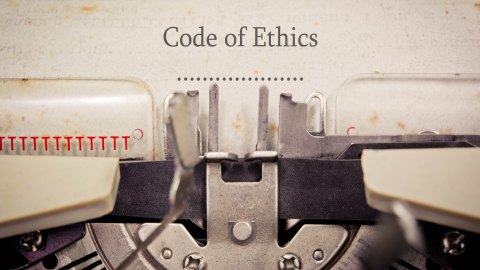Make Better Decisions By Prepping For Temptation

Professor Ayelet Fishbach and assistant professor Oliver J. Sheldon like to explain ethical dilemmas through how we should approach dieting — being aware that temptation may be awaiting you beforehand may help prepare us to make the right decisions (or ones we won’t regret later on).
Their study, Anticipating and Resisting the Temptation to Behave Unethically, seeks to find out if some exercises in mindfulness leads to an increase in identifying moments of ethical conflict.
Fishbach said in a press release:
“Unethical behavior is rampant across various domains ranging from business and politics to education and sports. Organizations seeking to improve ethical behavior can do so by helping people recognize the cumulative impact of unethical acts and by providing warning cues for upcoming temptation.”
In one experiment, business school students were positioned as brokers for the buyer and seller of a historic New York brownstone. The seller desperately wants to keep the brownstone intact and only release the property to a buyer that intends to preserve it. The buyer, on the other hand, says he wants to save the brownstone, but secretly plans on demolishing it to build a hotel. You can see where the two brokers would have a dilemma.
Before the exercise began, half of the participants were asked to think about a time when they cheated to get ahead. Of those that reminisced about a past time, only 45 percent behaved unethically during negotiations, while 67 percent who didn’t participate in the exercise beforehand did whatever it took to close the deal in the negotiations.
The results led the researchers to suggest that meditating or being reminded of unethical behavior ahead of a decision helps to curb the likelihood of making a bad one.
Dan Ariely, a Professor of Psychology and Behavioral Economics at Duke University, knows about the temptations we face everyday and the many decisions we have to make. The problem, he says, is that we’ve designed a world that allows us to text while driving, impulse buy, eat fast food, and so on–a world that sets us up to make bad choices.




